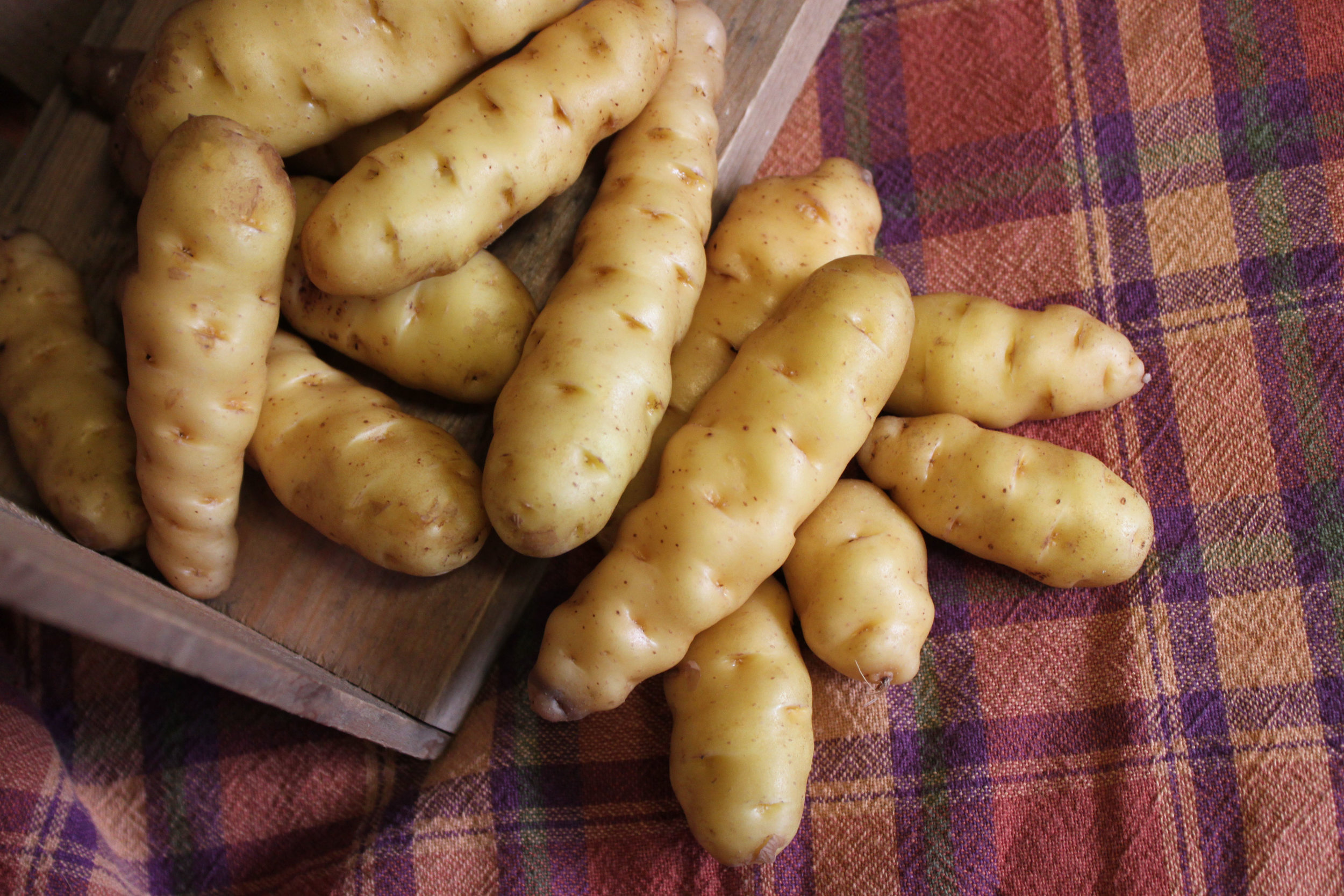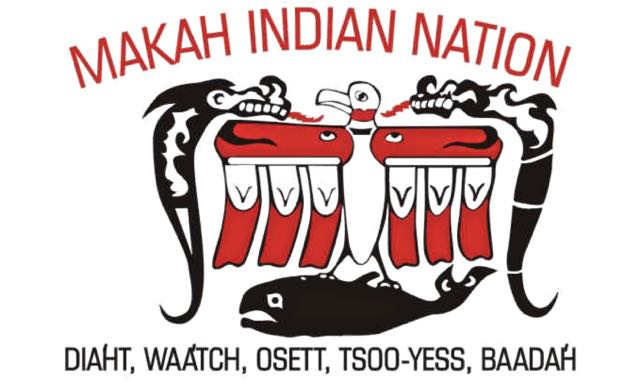The Makah Ozette Potato
2024 UPdate: Rematriation Project
Recognizing the cultural significance of this food for many Coast Salish people, we believe it is crucial to prioritize a healthy and sustainable transition. In 2021, we initiated the rematriation process by collaborating with local Indigenous women to guide the return of the seed and associated work to the communities of origin.
This endeavor is evolving into a dynamic partnership involving our chapter, Slow Food USA, and various Indigenous-led organizations dedicated to food sovereignty programs serving Native peoples. Acknowledging the complexity of this work and the time and dedication it requires, we are no longer distributing seed, but rather directing our efforts towards this rematriation initiative.
WHERE CAN I BUY OZETTE SEEDS?
There are for-profit businesses selling Ozette and other culturally important seeds. As advocates for ethical sourcing and community support, we urge you to patronize producers who have established seed royalty programs like Fedco, Truelove Seeds, Slow Food USA and High Mowing Seeds. These initiatives contribute to the well-being of the communities where the seeds originate and empower local communities.
Please join us in promoting sustainability and equitable practices in the seed industry.
The History of the Makah Ozette
Photo by Irish Eyes Garden Seeds
In the mid-1980s a fingerling potato was recognized to be a staple of the diet of Pacific Coast Native Americans of the Makah Nation, who live in the region around Neah Bay, Washington. David Ronniger, a potato aficionado and seed grower from Idaho, traveled to Neah Bay and noticed this peculiar potato in the garden of Anna Cheeka and labeled it such in his early seed catalogues. Soon it was renamed the Ozette potato by the Makah people referencing their ancestral village site on Lake Ozette. Tribal lore reported that this potato had been used by the people for about 200 years.
All potatoes originated in South America. Until recently, it was thought that all potatoes currently in North America were first rerouted through Europe by the Spaniards before arriving in North America via European colonization. However, in 2004 a phylogenetic analysis conducted at Washington State University provided evidence that the Makah Ozette potato (Solanum Tuberosum Group Tuberosum) was certain to have been imported directly from South America. After their conquests in South America, the Spanish began a mission to further establish their empire on the western shores of North America. In the spring of 1791 they established a fort at Neah Bay and as was the custom, a garden was planted that surely included potatoes they brought directly from South America through Mexico. Over the winter, the Spanish found the weather conditions in the harbor too severe to maintain their ships and they abandoned the fort.
The Makah people likely found remnants of this rather weedy plant left in the garden of the abandoned fort and became its stewards, growing it in their backyard gardens. Until the late 1980s this potato was rarely seen outside of Indigenous communities.
Phase 1: Working with the Makah Nation
In 2004 the Seattle chapter learned about the potato and realized it would be a perfect candidate for the Ark of Taste, Slow Food’s living catalog of delicious and distinctive foods facing extinction. It truly demonstrated every characteristic of an Ark of Taste product: of distinctive quality in terms of taste; linked to a specific area, memory and identity of a group and local traditional knowledge; and in limited quantities.
Research led to a regional DOA/WSU scientist who had specific interest in the potato. He had been supplying rooted cuttings to the elders in Neah Bay for many years, but the people in the community had only ever cultivated them for personal consumption.
Because the Makah Tribe had been the stewards of the potato for well over 200 years, it was most important and appropriate that they be asked to authorize Slow Food Seattle’s intent to nominate it to the Ark and possibly pursue presidium status. Gerry Warren, founder of the Slow Food Seattle chapter, and Charles Brown, research geneticist, arranged to present the project to the Tribal elders. At the end of the presentation, one of the Elders asked if the name “Makah” could be included in the name. This is why we call the potato the Makah Ozette.
Phase 2: Creating a Presidium
Photo by Kim Abrams-Marshall
In September 2005, the Makah Ozette was boarded onto the Ark of Taste, and in November 2006, the chapter submitted a presidium application to Slow Food USA and Slow Food International. Presidia (pl) are programs which protect a traditional product at risk of extinction, protect unique regions and ecosystems, recover traditional processing methods, and safeguard native breeds and local plant varieties.
To create and build the project, Slow Food Seattle worked in partnership with the Makah Nation, Full Circle Farm, Pure Potato, the USDA Agricultural Research Station in Prosser, WA, and the Seattle chapter of the Chefs Collaborative.
Slow Food Seattle began the project by using a portion of its treasury to purchase five hundred pounds of certified seed potato. One hundred pounds were sold to home gardeners and 400 pounds were sold to farmers interested in growing the crop. In the fall of 2006, the growers sold the first crop to the fresh market in the greater Seattle area. The chapter sold enough seed to cover the cost of their initial investment and to mount a public relations campaign that produced considerable press and demand for the Makah Ozette. In addition, nine chefs featured the potato on their fall menus.
Phase 3: Early Years of the project
Photo of Makah Ozette Potato Plant by Kim Abrams-Marshall
In the spring of 2007, the primary seed grower had a crop failure and seed was limited. This prompted Slow Food Seattle to call upon Pure Potato, a laboratory that works to certify potatoes as virus free. That year, many small farms also did a limited planting of the Makah Ozette. In the fall, Slow Food Seattle again launched a campaign to further regional awareness of the potato and featured it as a menu item at the American Heritage Picnic in Seattle.
In 2008 the Makah Ozette officially became a presidia project, and due to the collaborative effort, the potato seed was in high demand.
A highlight of 2009 was when Essential Baking Company contracted with Full Circle Farm make their seasonal potato bread using the Makah Ozette. The management of EBC declared this to be the most flavorful potato bread they had ever produced.
Unfortunately, 2010 was a disaster year for the potato. Flooding destroyed the entire crop of seed at Pure Potato and Full Circle Farm. This was a severe setback for the presidium as it would take three years to regenerate the seed stock back to the 2009 levels.
a brief account of 2018-2022
In 2018 Marlis Bedlington and her husband retired and the Pure Potato’s seed lab, a subsidiary of Bedlington Farms, closed. Marlis directed the lab, and without her expertise, the family could not support its continued operation and the chapter was in need of a new seed grower.
Irish Eyes Organic Seeds in Ellensburg, Washington agreed to produce the Makah Ozettes for the chapter’s annual distribution. Unfortunately, the following year, the company closed its doors and the chapter purchased the remaining seed and shipped it to Idaho.
John Hoggan, owner of Grand Teton Organics in Idaho Falls, was our certified seed grower until the spring of 2023. Potatoes are naturally prone to disease and growing them without the use of pesticides and herbicides is difficult even in the best of circumstances. However, climate change has created even more challenges the past few years including a highly unusual deep frost which destroyed most of our 2020 crop and locusts which ate our entire 2021 crop.
Slow Food Seattle’s Seed Donations
LOCAL INDIGENOUS ORGANIZATIONS AND COMMUNITY GARDENS
Each year, the chapter donates Ozette seed to Indigenous community gardens and organizations and school gardens. In 2023, our final seed sale was a fundraiser from which we were able to donate over 400 pounds of seed to the organizations listed below. The remaining profit was sent to the Makah Nation as royalties.
Na’ah Illahee Fund, Seattle, WA
Muckleshoot Community Garden / Tahoma Peak Solutions, Enumclaw, WA
The Cultural Conservancy, Sebastopol, CA
Nisqually Tribe Community Garden, Dupont, WA.
Skokomish Nation, Skokomish, WA
Snoqualmie Tribal Community Garden, Snoqualmie, WA
Lower Columbia School Garden, Longview, WA
Seattle Waldorf School, Seattle, WA
Hyla High School Garden, Bainbridge Island, WA
The Farm at Franklin Pierce School, Tacoma, WA
THOMAS JEFFERSON FOUNDATION
Growing culturally relevant crops has gained traction in recent years. In 2019, Keith Nevison from the Thomas Jefferson Foundation in Monticello requested more information about the beloved potato.
Keith, manager of the foundation’s Farm and Nursery Operations, was creating a showcase farm focused on promoting soil regenerative practices and connecting guests to stories of American agriculture. As a historical site, the foundation is dedicated to telling the stories around food crops and food way traditions. The foundation was interested in planting the Makah Ozette at their Tufton Farm, and SFS Presidium Coordinator Gerry Warren donated 15 pounds of seed to their effort.
Seed Rematriation
As a culturally significant food for many Coast Salish people, we strongly felt the need to prioritize a healthy and sustainable handoff, and in 2021, we began the rematriation process by engaging with local Indigenous women to guide the return of the seed and the associated work to the communities of origin.
Currently, this looks like a dynamic partnership with Slow Food Seattle, Slow Food USA, and multiple Indigenous-led organizations involved in food sovereignty programs serving Native peoples. We acknowledge that this work takes time, and we are committed to support the project which will be guided by Indigenous voices and priorities and progress at a pace that aligns with the needs and perspectives of the Indigenous communities involved.
The chapter board has made the decision not to continue the propagation and sale of Ozette seed at this time. Given the complexity of this work and the time and dedication it requires, we are directing our efforts towards this initiative for the time being.
If you share our passion and would like to support or get involved in this project, please feel free to contact us at info@slowfoodseattle.org.
Recipes Around the internet
The Makah Ozette potato has firm flesh, creamy texture and a unique nutty, earthy flavor that is appreciated by home cooks as well as chefs. Click here for more recipes.








